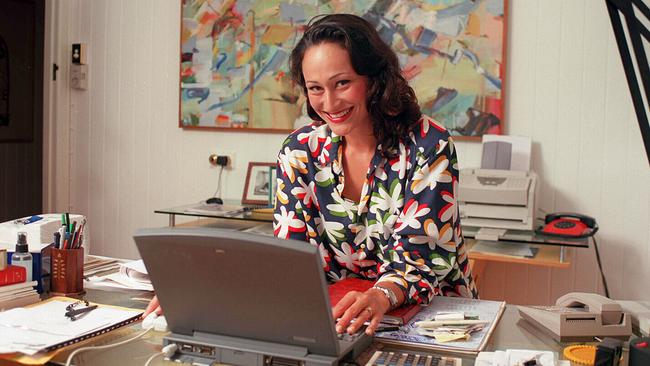Who should pay for your desk when you’re working from home?
Should taxpayers foot the bill for the home office as business baulks?

As millions of Australian workers enter their third year of working from home, the extent of cost shifting from employers to workers and ultimately to taxpayers is becoming apparent. While companies reap significant savings as employees continue to work remotely, most businesses are not picking up the extra home office costs.
Instead, workers are clawing back the additional expenditure through individual tax returns. The amount claimed last year for working from home expenses soared by 31 per cent to $3.2bn, an increase of $767m in just 12 months.
The new data emerged as unions seek to reignite their stalled attempts to incorporate working-from-home clauses into enterprise agreements. Millions of white-collar workers are likely to spend 2022 employed under a hybrid arrangement, spending two or three days in the office while working remotely the other days.
The Finance Sector Union recently struck an agreement with industry super fund First Super that gives workers the right to ask their employer to pay for home office equipment and supplies, while enshrining the right of employees working remotely to disconnect. The union’s Victorian and Tasmanian secretary Nicole McPherson says First Super is the first employer to support the full suite of working-from-home arrangements sought by the union. Under the agreement, an employee may request First Super purchase office equipment or supplies for use in their home office. Where First Super approves, arrangements will be made with the employee to facilitate the purchase.
First Super employees working remotely have a right to disconnect from work, and the fund will “actively ensure” they are not expected to read work emails or answer mobile phones outside working hours.
“To some degree, we’ve had to take a really flexible approach to compensation because as you would expect employers are pretty unwilling to give people five grand, two grand, whatever, a year,” McPherson says. “They have been far more willing to do compensation for particular items that you have to buy. In fact, most of the banks have done that to make sure people have a proper office set up, but we haven’t really seen anybody at this point come at the allowance.”
McPherson says union members want to ensure remote work is cost-neutral for them. “Employers are making significant savings with employees working from home,” she says. “We’ve had employees telling us about their electricity bills doubling, their heating bills in winter going up, their electricity bills in summer to keep their houses cool going up, the increased internet spend needed to increase their bandwidth to do video calls all day, not to mention all the costs associated with making sure you have a decent desk and a decent chair.”
Australian Industry Group chief executive Innes Willox says employers are typically trying to accommodate employees wanting to work remotely.
“If unions or others start making claims in this area, this is likely to discourage employers from continuing with working from home arrangements once the pandemic is over,” he says.
ACTU secretary Sally McManus says the cost of working from home should never fall on the worker, and it is the employers’ responsibility to ensure workers have everything they need to perform their duties safely and effectively.
She says working from home can, when done responsibly, provide a good opportunity for workers to strike a better work-life balance.
“But we’re hearing reports of unpaid labour, burnout because of the lack of distinction between work and personal time, and costs associated with working from home being left to the worker to front. This needs to be regulated at home as it is in the workplace,” she says.


